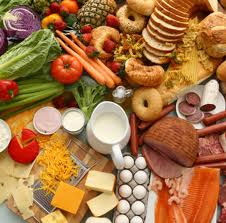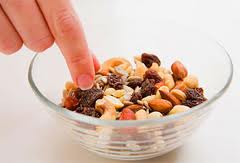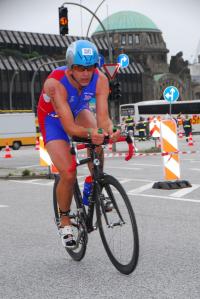Main Menu
Latest Blog Entry
User login
How much protein does an athlete need?

Protein in real food
Never underestimate the capacity of the public to look for short cuts and easy answers. (The fact that I don’t sell miracles is probably why I am not rich) One of the most common questions we are asked by young athletes is “What supplements should I take?”
One young rugby player who does about 15mins of resistance training a week asked if he should be taking protein supplements!
2 hockey players who have only just started resistance training asked me this week if they should take creatine supplements.
These 3 people need to establish a good training base, then work on eating enough good quality food each day. They then need to work on periodising their strength and conditioning training for maybe 2 years to develop that further. Once these factors have been established we may look at supplementation.
There are no shortcuts to success– no matter what money you spend- you still have to work hard and smart.
Before you take your protein shake you need to know what is in it, and how much you need.
What is Protein?
Protein is a necessary component of the diet and has many roles in the body, such as being a structural component of muscles and other cells. It also acts as a catalyst for biochemical reactions in the body and serves as transporter of molecules.
The boring stuff….
Protein can be used as a body fuel and its use is increased during exercise however protein still does not provide a significant amount of energy for the body during exercise. Proteins have a key role in recovery for an athlete and are made of amino acids that are linked by chemical bonds.
The exact composition and arrangement of the amino acids gives the form and function to the protein. In addition to serving as a precursor for protein; amino acids also act as neurotransmitters and are used in the synthesis of DNA, RNA, and hormones. A lack of protein in the diet can lead to growth loss, weakening muscles, heart and respiratory system failure and decreased immunity.
How much protein do I need?
Developing athletes should be taking about 1g of protein per kg of body weight per day. This needs to be spread out over every meal, rather than consumed in 1 big meal at night time.
If you are going through a growth spurt, training more than once a day, or are doing a speed/power/ strength sport, then you may need slightly more on the days that you train.
Body builders….
Protein has become, with the increase in muscle building, something of a must have and in bulk too. The protein contained within such products as maxi muscle is very condensed. It is stated as providing a much higher protein concentration than some food products. Although this is up for discussion as is the price. If you are looking for a quick, after workout drink then having a powder to mix is easy but will it really give you the nutritional value that a ‘real’ meal will?
You don’t have to eat steak either….
There are other alternatives to both of these. Other food types also contain protein. Although to eat some of these products, you sometimes feel like you must be a vegetarian or fruitarian. However that stereotype is totally wrong.

Nuts are good source
Go nuts….
Within the wholegrain food group there are many foods that contain protein. Wheat is very high, therefore so is some cereal for example shredded wheat.
Porridge is a popular breakfast for our athletes, which is good due to its awesome slow releasing properties. Using whole milk, and adding fruit, nuts and cinammon for flavour, turns this into a better breakfast.
Nuts for example contain around 10% protein. Nuts are very easy to buy and easy to eat, with cooking and preparation not an issue. This is very important for athletes or people living a busy life.
Eggs have always been considered a good food to eat and provide a slow release of energy throughout the day. One egg is said to provide around 12 grams of protein although it does differ albeit slightly, depending how it is cooked. An omelette with mushrooms, peppers, tomatoes may well be a good alternative to the chicken salad or steak and potatoes after a workout.
Along the snack line once again, raisins, prunes and sultanas are low in protein but still provide 2 grams per every 100 and thus can be used as a quick snack or an accompaniment to a meal.
Milk contains 3.4 grams protein per every 100ml (semi skimmed). This is very useful because it is good to drink milk for the calcium and other by products for bones etc. However research also shows it is a good accompaniment to a meal, to boast protein level.
Having a pint of milk (19.3g) and a banana (1.1.g) immediately after your training before going on to have a proper meal later will be enough to make an effective difference.
Concluding statement….
There are many products that contain protein and are widely available. Thus you do not just have to have meat within a diet to reach the protein needed, although many people will continue to eat meat within their diet. Within reason, this is recommended as a nutritious and healthy diet. It is however possible to maintain protein intake by varying the foods that are eaten. This could reduce the price of a weekly shop, which is more realistic for student athletes.
Client Testimonials
 David Ardley- triathlete
David Ardley- triathlete
I had the pleasure (I think !) of working with James for a year or so focused on getting my Triathlon times down. Its amazing what was achieved in the space of an hour before work. What stood out for me is the constant variation of exercises and his ability to set the difficulties levels just right. His sense of humour and competitive spirit always helped when my energy levels were not quite there. I can attribute his structured training to my eventual success competing in the World Triathlon championships (age group) in Hamburg.
More


Comments
[…] should feature the correct ratios of protein, carbohydrates and fats obtained from natural sources lean meats, eggs, dairy, fresh fruit and […]